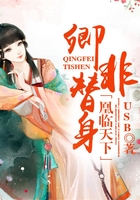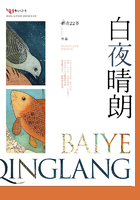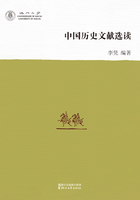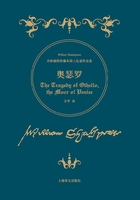The trader was the first pathfinder. His caravans began the change of purpose that was to come to the Indian warrior's route, turning it slowly into the beaten track of communication and commerce. The settlers, the rangers, the surveyors, went westward over the trails which he had blazed for them years before. Their enduring works are commemorated in the cities and farms which today lie along every ancient border line; but of their forerunner's hazardous Indian trade nothing remains. Let us therefore pay a moment's homage here to the trader, who first--to borrow a phrase from Indian speech--made white for peace the red trails of war.
He was the first cattleman of the Old Southwest. Fifty years before John Findlay,* one of this class of pioneers, led Daniel Boone through Cumberland Gap, the trader's bands of horses roamed the western slopes of the Appalachian Mountains and his cattle grazed among the deer on the green banks of the old Cherokee (Tennessee) River. He was the pioneer settler beyond the high hills; for he built, in the center of the Indian towns, the first white man's cabin--with its larger annex, the trading house--and dwelt there during the greater part of the year. He was America's first magnate of international commerce. His furs--for which he paid in guns, knives, ammunition, vermilion paint, mirrors, and cloth--lined kings' mantles, and hatted the Lords of Trade as they strode to their council chamber in London to discuss his business and to pass those regulations which might have seriously hampered him but for his resourcefulness in circumventing them!
* The name is spelled in various ways: Findlay, Finlay, Findley.
He was the first frontier warrior, for he either fought off or fell before small parties of hostile Indians who, in the interest of the Spanish or French, raided his pack-horse caravans on the march. Often, too, side by side with the red brothers of his adoption, he fought in the intertribal wars. His was the first educative and civilizing influence in the Indian towns. He endeavored to cure the Indians of their favorite midsummer madness, war, by inducing them to raise stock and poultry and improve their corn, squash, and pea gardens. It is not necessary to impute to him philanthropic motives. He was a practical man and he saw that war hurt his trade: it endangered his summer caravans and hampered the autumn hunt for deerskins.
In the earliest days of the eighteenth century, when the colonists of Virginia and the Carolinas were only a handful, it was the trader who defeated each successive attempt of French and Spanish agents to weld the tribes into a confederacy for the annihilation of the English settlements. The English trader did his share to prevent what is now the United States from becoming a part of a Latin empire and to save it for a race having the Anglo-Saxon ideal and speaking the English tongue.
The colonial records of the period contain items which, taken singly, make small impression on the casual reader but which, listed together, throw a strong light on the past and bring that mercenary figure, the trader, into so bold a relief that the design verges on the heroic. If we wonder, for instance, why the Scotch Highlanders who settled in the wilds at the headwaters of the Cape Fear River, about 1729, and were later followed by Welsh and Huguenots, met with no opposition from the Indians, the mystery is solved when we discover, almost by accident, a few printed lines which record that, in 1700, the hostile natives on the Cape Fear were subdued to the English and brought into friendly alliance with them by Colonel William Bull, a trader. We read further and learn that the Spaniards in Florida had long endeavored to unite the tribes in Spanish and French territory against the English and that the influence of traders prevented the consummation. The Spaniards, in 1702, had prepared to invade English territory with nine hundred Indians. The plot was discovered by Creek Indians and disclosed to their friends, the traders, who immediately gathered together five hundred warriors, marched swiftly to meet the invaders, and utterly routed them.
Again, when the Indians, incited by the Spanish at St. Augustine, rose against the English in 1715, and the Yamasi Massacre occurred in South Carolina, it was due to the traders that some of the settlements at least were not wholly unprepared to defend themselves.
The early English trader was generally an intelligent man; sometimes educated, nearly always fearless and resourceful. He knew the one sure basis on which men of alien blood and far separated stages of moral and intellectual development can meet in understanding--namely, the truth of the spoken word. He recognized honor as the bond of trade and the warp and woof of human intercourse. The uncorrupted savage also had his plain interpretation of the true word in the mouths of men, and a name for it. He called it the "Old Beloved Speech"; and he gave his confidence to the man who spoke this speech even in the close barter for furs.
We shall find it worth while to refer to the map of America as it was in the early days of the colonial fur trade, about the beginning of the eighteenth century. A narrow strip of loosely strung English settlements stretched from the north border of New England to the Florida line. North Florida was Spanish territory.
On the far distant southwestern borders of the English colonies were the southern possessions of France. The French sphere of influence extended up the Mississippi, and thence by way of rivers and the Great Lakes to its base in Canada on the borders of New England and New York. In South Carolina dwelt the Yamasi tribe of about three thousand warriors, their chief towns only sixty or eighty miles distant from the Spanish town of St.















